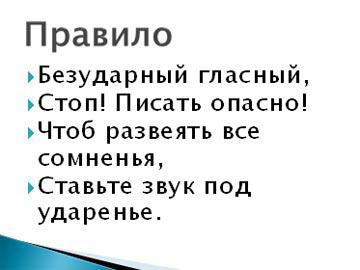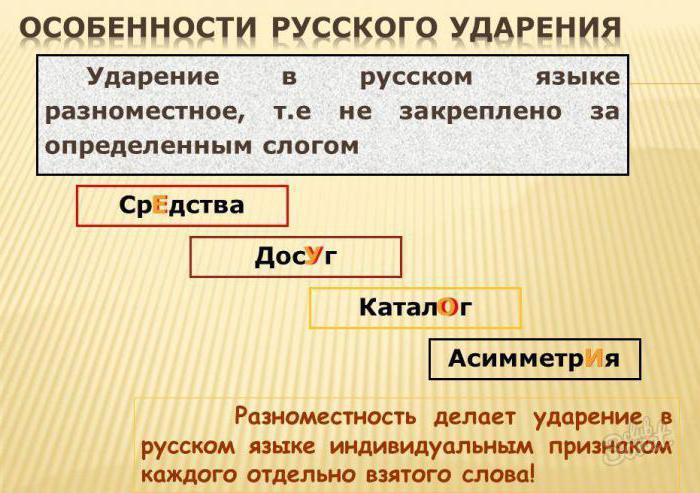An important part of linguistics is orthoepy - the science that studies pronunciation. It is she who answers the question of how to correctly emphasize in different cases. Without knowledge of this, competent oral speech is impossible. Incorrectly placed stress not only makes a person ridiculous in the eyes of interlocutors, but also seriously complicates the communication process, because the word can eventually change its meaning ... Our article is devoted to the topic "Correct stress in words." How to put stress correctly, we will consider in this publication in more detail.
What is an accent?
Word stress is the emphasis of one of the syllables of a word with the help of voice. The pronunciation of a stressed vowel requires a special strain on the organs of speech and phonation. The syllable pronounced with the greatest force is called stressed.
In addition to verbal, there is also syntagmic stress (highlights a certain word in a syntagma), phrasal (highlights a syntagma in a phrase) and logical (highlights a word to emphasize its semantic dominance over others in a given context).
Types of word stress
Word stresses also have their subspecies. The division is carried out taking into account what means and methods of staging are used in a particular language. This is how they distinguish:

It should be noted that several means of acoustics can be combined in the same stress. In addition, in different words of the same sentence, stress can be more pronounced and vice versa.
Designation of stress in writing
In addition to the peculiarities of setting, there are still different ways of designation. For example, in the international phonetic alphabet, stress is indicated by a vertical line or a line above the syllable. In Russian, it is sometimes denoted by the sign “akut”, which is placed above. In English, they put a stroke at the end of the stressed word. In some dictionaries, stress is indicated by a combination of bold and
Stress in Russian
The stressed syllables of the Russian language have a longer pronunciation compared to other parts of the word. But the height of the selected vowel can change. There are many languages among the world's languages where stress is a stable and fixed thing. Like, for example, the French, who always emphasize the last syllable in a word if it is pronounced separately. And in the whole phrase, everything except the final word is unstressed. Only the last syllable of the rhythmic group (actually, the phrase) stands out. 
There are no such patterns in Russian. The stress can fall on any syllable. Moreover, it can change in word forms. Therefore, it is not always easy to correctly place stresses. Especially for a person who is not a native speaker.
Who is having difficulty?
Of course, a person who was born and raised among native speakers of the literary Russian language, surrounded entirely by teachers, writers, university professors and other representatives of the intelligentsia, will never have big problems with stress. But are there many such people? Russia is huge, it is home to a large number of nationalities who communicate either in Surzhik or in their own dialects or languages. They have a hard time with literary speech.

And it is even more difficult for Russian-speaking people living outside of Russia, where the influence of other languages is strong. Well, of course, foreigners who come to the Russian Federation to work or for permanent residence often do not understand at all how to properly emphasize this or that word. After all, there are no norms that determine the regularity of its placement in the Russian language as such!
Way out
What should a person do who wants to make the right stress in words? How to put them in a particular case? If we are talking about a foreigner who moved to Russia, then communication with the indigenous population will help him (but not with loaders at the station, of course). You need to look for the relevant areas, listen and remember. Television and radio stations are of great help in this matter. As a rule, the media administration monitors the literacy of its staff.
People living outside the Russian Federation will need a spelling dictionary or reference book, where you can always check the correct pronunciation. In addition, today there are all sorts of programs and Internet resources that help you quickly master literary Russian. 
But problems arise not only among the above categories of citizens. Indigenous Russians, who by and large know how to speak correctly, also sometimes face a dilemma and do not know how to make the right stress in words. How to put them correctly, for example, in foreign terms? Often there are difficulties with words that used to be pronounced this way, but now they are pronounced differently ... There are not many of them at all - about a few dozen. But some are so deeply ingrained in their delusion that even a professor of linguistics may have some doubts!
Correct stress in words: how to correctly stress the word "ringing"?
Perhaps the most textbook example of mispronunciation is the word "ringing". No matter how hard the teachers try, no matter how much the comedians ridicule the ignorant, the mistake in the mouths of the people continues to live on. Well, our population does not want to learn by heart how to correctly stress the word “ringing”!
Perhaps this is due to the fact that in many literary works, old films, etc., the pronunciation of this word did not meet modern standards. And linguists are even thinking about whether they should meet the masses and correct the rule? But so far this has not happened (and it is not known whether this will be done in the future), and it is necessary to put the accent in the word “ringing” correctly. It falls on the second syllable. And nothing else. 
curd problem
Often there are difficulties with the word "cottage cheese". Some pronounce it with an emphasis on the first "o", others - on the second ... And there is a historical explanation for this. Because the term for this fermented milk product was pronounced differently at different times.
In the dictionaries of the nineteenth century, the norm is fixed, where the stress is the second syllable. And the famous linguist Dal insists on the first. Over the past century, people stubbornly used both options, and in the end, linguists agreed that in the case of the word "cottage cheese", the correct stress would not be fixed. True, in principle, is considered one type of pronunciation, and another. Both "o" can be stressed.
It only applies to everyday life. And in the official speeches of politicians, speeches of journalists, etc., it is preferable to use "cottage cheese" with an emphasis on the second syllable.
These words must be learned
In addition to the two above, in Russian there are a number of words in the pronunciation of which mistakes are traditionally made. The following is a list of correct accents that you just need to memorize. 
- Airport - stress on the fourth syllable.
- Pamper - on the last syllable.
- Include - stress on the second syllable.
- Development - on the second syllable.
- Money - stress on the second syllable.
- The contract is on the last syllable.
- Absolutely - stress on the second syllable.
- Blinds - on the last syllable.
- Clog - stress on the second syllable.
- Stroke - on the second syllable.
- Catalog - stress on the last syllable.
- Quarter - on the last syllable.
- More beautiful - stress on the second syllable.
- Providing - stress on the third syllable.
- Lighten - on the last syllable.
- On Wednesdays, the stress is on the last syllable.
- Having accepted - on the second syllable.
- Beet - stress on the first syllable.
- Plum - on the first syllable.
- Cakes - stress on the first syllable.
- Phenomenon - on the second syllable.
- Intercession - stress on the second syllable.
- Scoop - on the first syllable.
- Sorrel - stress on the second syllable.
This list can be titled as follows: "Speak correctly - put stress in the right places" - and hang it over your desk. Or over the bed to repeat at bedtime. Or on the bathroom mirror to start every morning smartly. For a quick effect, it is advisable not only to read the words to yourself, but also to pronounce them out loud. And loud. And several times. It will take only a couple of weeks (and for someone, maybe even days), and the correct pronunciation will harmoniously fit into oral speech. The main thing is desire, just a little effort - and everything will work out!



